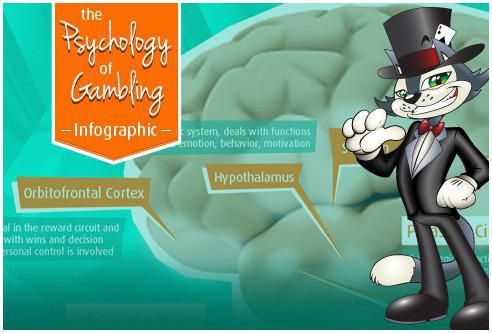gambling with” width=”492″ height=”333″>
Gambling has been a popular form of entertainment for centuries. Whether it’s wagering on card games, casino table
games, sports betting, or even online gambling, the allure of the risk and uncertainty creates a unique thrill that
appeals to many individuals. However, behind this exhilarating activity lies a complex psychological phenomenon that
influences the minds of bettors.
The Role of Expectations
One fundamental aspect of gambling psychology is the role of expectations. When bettors engage in gambling activities,
their minds are filled with anticipation and the hope of winning big. This expectation triggers the release of
neurotransmitters like dopamine in the brain, leading to feelings of excitement and pleasure.
The Gambler’s Fallacy
Another important concept in gambling psychology is the gambler’s fallacy. This is the irrational belief that if an
event occurs more frequently than usual in a given period, it is likely to happen less frequently in the future, or vice
versa. For example, after five consecutive losses in a game of roulette, a bettor might believe that a win is due, even
though the odds remain the same. This fallacy can influence decision-making and lead to risky bets based on faulty
reasoning.
The Illusion of Control
The illusion of control is another psychological phenomenon common among gamblers. It refers to the belief that
individuals can influence the outcome of a gambling activity through their own actions or skills, despite the inherent
randomness involved. This illusion can be seen in sports betting, where fans think their knowledge about teams and
players gives them an edge in predicting game outcomes. However, the reality is that luck plays a significant role,
often overriding any perceived control.
The Impact of Near Misses
Near misses – the moments when bettors come close to winning but fall short – have a powerful impact on gambling
psychology. They generate a sense of frustration but also keep the hope of winning alive. Near misses trigger an
adrenaline rush, reinforcing the desire to keep playing with the belief that a victory is just around the corner. This
psychological effect helps to sustain engagement, even in the face of consecutive losses.
The Role of Cognitive Biases
Cognitive biases significantly influence the decision-making process in gambling. For instance, confirmation bias can lead
bettors to seek information that supports their existing beliefs about their chances of winning, while ignoring
contradictory evidence. Anchoring bias may cause individuals to place excessive importance on the first piece of
information encountered, shaping subsequent decisions. Understanding these biases is crucial to making more rational
choices and avoiding unnecessary risks.
The Pinnacle of Risk: Problem Gambling
Despite the enjoyment that gambling brings to many, excessive gambling can lead to problem gambling or even gambling
addiction. This compulsive behavior disrupts an individual’s life, relationships, and financial well-being. Understanding
the psychological factors contributing to problem gambling is essential in developing effective prevention and treatment
strategies.
Conclusion
Gambling is more than just chance and luck; it is a psychological experience intertwined with expectations, biases, and
the pursuit of thrill. Understanding the mind of a bettor can help us comprehend the allure of gambling and its possible
dangers. By being aware of these underlying psychological influences, both gamblers and society at large can approach
gambling with a more informed and responsible mindset.
